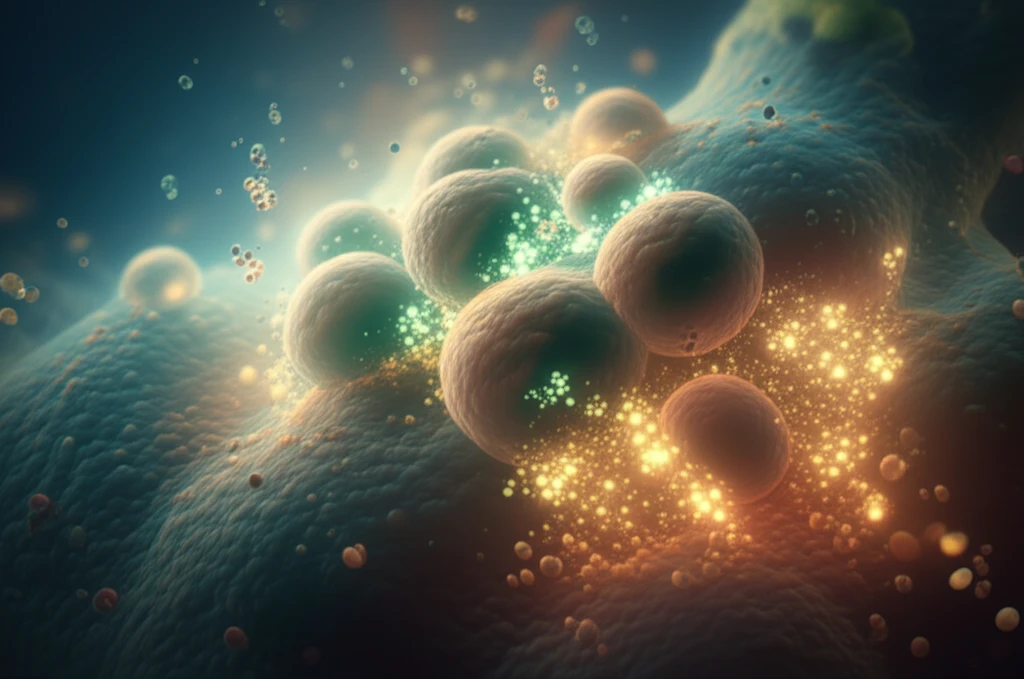
Can This Tiny Molecule Conquer Cancer? New Hope in Tubulin Inhibitors
"Scientists design novel compounds that target cancer cells' inner machinery, showing promise for future treatments."
Cancer remains one of the most formidable health challenges of our time, spurring relentless research into more effective and less toxic treatments. Among the promising avenues of exploration is the development of tubulin polymerization inhibitors—drugs that target the very structure of cancer cells to disrupt their growth and spread.
Microtubules, essential components within cells, play a pivotal role in cell division and intracellular transport. Disrupting these structures can selectively halt cancer cell proliferation. While existing drugs like vincristine and paclitaxel have shown effectiveness, their severe side effects, including neurotoxicity and cardiovascular issues, limit their widespread use.
Recently, a team of researchers has synthesized novel sulfanilamide-1,2,3-triazole hybrids, demonstrating significant antiproliferative activity against several cancer cell lines. These compounds aim to inhibit tubulin polymerization with potentially fewer side effects, offering a beacon of hope for more targeted cancer therapies.
What Are Tubulin Polymerization Inhibitors and Why Are They Important?

Tubulin polymerization inhibitors are a class of drugs designed to interfere with the formation of microtubules. Microtubules are dynamic structures made of tubulin proteins, essential for cell division, cell motility, and intracellular transport. Cancer cells, which divide rapidly, are particularly vulnerable to disruptions in microtubule dynamics.
- Targeted Action: Specifically disrupt cancer cell division.
- Reduced Side Effects: Aim to minimize harm to healthy cells.
- Versatile Application: Potential for use in various cancer types.
The Future of Cancer Treatment: A Glimpse of Hope
The development of sulfanilamide-1,2,3-triazole hybrids represents a significant step forward in cancer therapy. By effectively targeting tubulin polymerization and inducing apoptosis in cancer cells, these compounds hold promise for more effective and less toxic treatments. As research progresses, these innovative approaches may pave the way for new therapeutic strategies that significantly improve outcomes for cancer patients.
